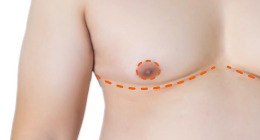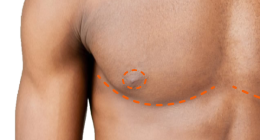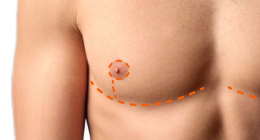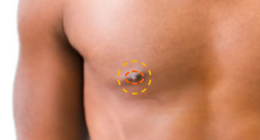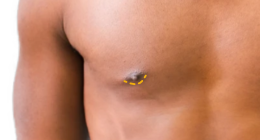Sponsored Article
Do Cannabis and Top Surgery Mix?
 Attitudes about cannabis consumption are shifting rapidly and while it remains illegal in most jurisdictions, it's clear that pot has gone mainstream. That means there are a lot of trans guys who enjoy marijuana, whether it's a once-in-a-while indulgence or a part of a daily routine, and this raises the need for a level-headed discussion about marijuana use prior to and after Top Surgery. For the best Top Surgery outcome, marijuana should be avoided, however there are also post-operative therapeutic uses of marijuana. If you like weed but are concerned about how it could affect your Top Surgery, check out these tips.
Attitudes about cannabis consumption are shifting rapidly and while it remains illegal in most jurisdictions, it's clear that pot has gone mainstream. That means there are a lot of trans guys who enjoy marijuana, whether it's a once-in-a-while indulgence or a part of a daily routine, and this raises the need for a level-headed discussion about marijuana use prior to and after Top Surgery. For the best Top Surgery outcome, marijuana should be avoided, however there are also post-operative therapeutic uses of marijuana. If you like weed but are concerned about how it could affect your Top Surgery, check out these tips.
Tips For Tokers
1. No tobacco! You're not really mixing tobacco in with your weed, are you!? Just don't.
Seriously though, we know that smoking tobacco can complicate surgery and negatively affect results. The biggest issue with smoking tobacco is the nicotine, which is a vasoconstrictor. Vasoconstrictors decrease blood flow to the tissues, which can result in tissue death. In Double Incision Top Surgery, this can present itself as compromised or completely lost nipple grafts.
2. No smoking! Vape it or bake it, dude.
Like tobacco smoke, there is carbon monoxide in cannabis smoke. Carbon monoxide decreases the oxygen carrying capacity of hemoglobin in the blood, and like vasoconstriction, increases the risk of decreased blood flow and tissue death, as well as delayed wound healing and more scarring. Also, smokers have a more reactive airway (coughing, wheezing, shortness of breath) which can cause serious breathing problems during and after surgery. For example, marijuana smokers are more likely than non-smokers to be on a ventilator longer and have a higher risk of developing pneumonia after surgery. Lastly, the act of coughing itself can lead to internal bleeding after surgery that can cause hematomas and other complications. In one study, researchers concluded that the pulmonary complications in the chronic marijuana smoker are equivalent to those seen in the chronic tobacco smoker.
Watch this video from Dr. Scott Mosser:
3. Abstain before surgery. I know, this part sucks.
Here's the problem: cannabis can have negative interactions with anesthetic drugs. Propofol, a commonly used anesthetic, requires substantially higher doses for the patient who routinely uses marijuana. Conversely, Marijuana can increase the effects of other anesthetic drugs, leading to a deeper level of anesthesia than intended. Marijuana is also a vasodilator, causing blood vessels to relax, blood pressure to fall and the heart rate to increase. These can change the way the body responds to anesthesia and can further complicate matters during surgery.
Related studies: Problems during the induction and maintenance of anaesthesia in a patient who was a cannabis smoker; Anaesthetic consideration in a "cannabis addict" [sic] - PDF
What about twilight sedation? Local, conscious or twilight sedation does not render the patient unconscious but sedated. This type of anesthesia is sometimes used for Top Surgery revisions. Medications used for twilight sedation usually increase heart rate and this can be compounded with marijuana, leading to more bleeding during and after surgery.
Occasional marijuana consumers should abstain for two weeks before surgery to mitigate the anesthesia interactions. Those who consume on a daily basis should aim to abstain for a full month as withdrawal can include disruption of sleep patterns and you'll need to be well-rested before you submit to the physical and emotional stress of surgery.
Therapeutic Uses of Cannabis After Top Surgery
This is all sounding pretty negative, but there are some therapeutic uses of cannabis after surgery.
- Alleviation of nausea and vomiting from medications;
- Appetite stimulation;
- Pain management: Cannabinoids have non-opioid analgesic, muscle relaxant and anti-inflammatory actions;
- Anti-depressant, anti-anxiety effects;
- Sleep aid.
If you're consuming weed after surgery, be sure to continue to avoid smoking it for the same reasons as before surgery: risk of decreased blood flow and tissue death, delayed wound healing, and more scarring and coughing potential.
As much as we might like our nugs and dabs, the truth is that there are risks associated with marijuana use before surgery. That doesn't mean that everyone who uses marijuana before Top Surgery will experience negative effects, but aren't your surgery results worth the sacrifice of some lost highs? Of course, for those who use medical marijuana it's not so simple.
Even if you don't abstain before surgery, there's one take away every cannabis consumer should get from this article and that is to be honest and detailed with your surgeon and the anesthesiologist about your cannabis use. It's critical that the anesthesiologist is aware of the potential for your body to react differently to anesthesia drugs and to be prepared if any breathing issues come up during or after your surgery. Don't be afraid to disclose this information as it will remain confidential.
Now, who's got a light?
Originally published 09/17/16. Last updated: 04/30/19.
